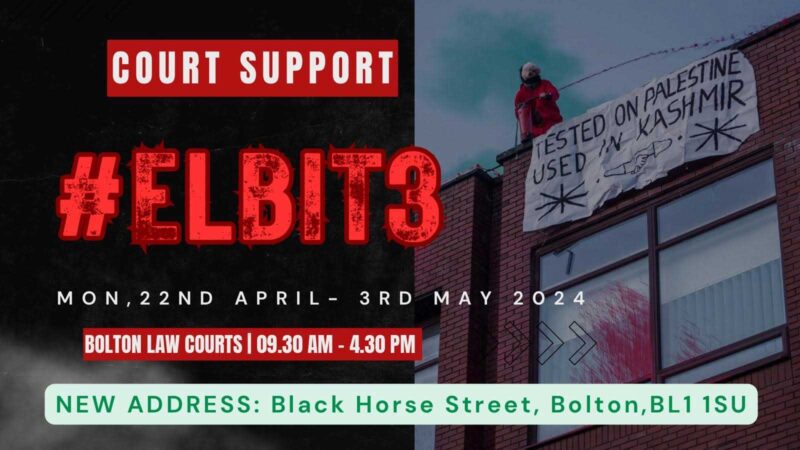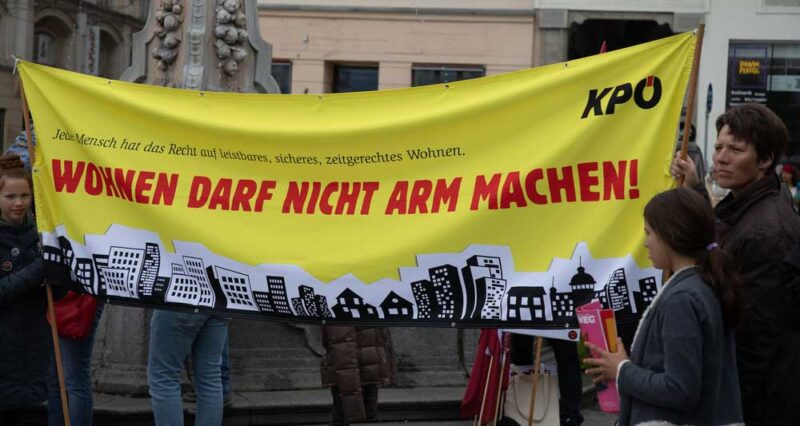Spanish city centres occupied in fight against austerity and cuts
 The occupation of Madrid’s Puerta del Sol square, the Plaça de Catalunya, Barcelona, and those of other cities across Spain marks an important new development in the fight against the cuts across Europe, writes Dave Stockton
The occupation of Madrid’s Puerta del Sol square, the Plaça de Catalunya, Barcelona, and those of other cities across Spain marks an important new development in the fight against the cuts across Europe, writes Dave Stockton
Across Spain town squares have been occupied by youth and social movement activists in an act of rebellion against the government. Similar camps have been set up in other cities in Europe, in solidarity with the Spanish youth, showing their rage against the savage cuts of their own government. Most dramatic have been the several days of angry demonstrations in Greece. In Britain too there is widespread discussion about supporting the public sector strikes of 30 June with Spanish-style protests.
The occupations in Madrid, Barcelona and other cities by tens of thousands of young people, unemployed and students has made the issue of youth unemployment and the effects of the government’s austerity visible to millions.
Spain’s 21.3 per cent unemployment rate is the highest in the EU – a record 4.9 million are jobless – but the rate soars to over 43 per cent for young people. Those who have jobs are mainly in low paid, insecure and often only part-time positions. Even the IMF, whose policies promote unemployment and low wages, has called them “the lost generation”. Ignored by government and opposition parties and to a large degree by the trade unions too, they have finally found a voice.
Self-consciously modeled on the mass occupation of Tahrir Square in Cairo, they have shown the widespread disillusion of young people with all the major political parties. This is hardly surprising since both have governed for years as youth unemployment and insecure jobs rose remorselessly – as the government bailed out the banks but demanded savage austerity from the mass of the people.
The government of the Socialist Workers Party and Prime Minister José Luis Rodríguez Zapatero
are imposing €15 billion of spending cuts, up to 15 per cent cuts in civil servants’ salaries, raising the retirement age from 65 to 67, and “freeing up the labour market” by weakening workplace protection and workers’ rights. Big cuts in education and healthcare are being driven through by the regional governments: in Catalonia, some 10 per cent of the budget has been eliminated. The opposition People’s Party (Partido Popular-PP) led by Mariano Rajoy totally supports these cuts and is an even bigger fan of privatisation and slashing labour rights. In addition the PP is mired in a corruption scandal in Valencia, where they were found to be selling government contracts to private companies in exchange for campaign contributions. Examples like this show the class basis of the PP and whom it will serve in government.
Youth rise up!
The occupations have attracted large-scale support, especially on 18 May when 130,000 people demonstrated across Spain. An estimated 50,000 protested in Madrid, 15,000 in Barcelona and 10,000 in Seville. Smaller demonstrations took place in another 57 cities and towns.
The protests, variously referred to as the 15-M Movement, or as the #spanishrevolution (named after the twitter hashtag) has as its main slogan “real democracy now!” (Democracia real YA!). It was an initiative by a series of anti-neoliberal groups and NGOs such as Attac, Intermon Oxfam, Ecologists in Action or Youth without Future. Using Twitter and Facebook they issued and appeal to “the unemployed, poorly paid, the subcontracted workers, the precarious, young people…” to occupy the main squares on 15 May. Young people responded massively and magnificently – calling themselves Los Indignados – the outraged.
Like the revolutionaries in Tunisia and Egypt, the demonstrators used social media to put over the message at a time when the broadcast and print media, public as well as private, first ignored them, then ridiculed them and finally threatened them with the courts, the police and outright repression. Thousands of individual participants were thus able to counter the lies of the right-wing journalists and politicians instantaneously.
Allies or enemies?
Their hostility to the main parties is understandable, since both are pledged to the austerity measures which will make the already bad condition for workers and youth unendurable. They have rejected attempts by PSOE politicians to come and address them. But the occupiers in Madrid have also made it clear that the trade unions were not welcome. This too is understandable – though a seriously wrong move. The major union federations – the Sindicato Unión General de Trabajadores (UGT) and Confederación Sindical de las Comisiones Obreras (CCOO) – hardly present an attractive alternative to the young unemployed whose cause they have not actively championed.
Despite a one-day general strike last year, the unions signed an agreement with the government over reforms to the pensions system and the labour market. The union leaderships are selling the jobs of young people – future workers – in exchange for meagre reductions in the cuts. Instead they should be organising the unemployed and leading a mass uprising, demanding jobs for all. If they did this union membership and strength would soar.
This hostility to the trade unions is not universal however. Other camps in the more radical left cities like Barcelona have been organised along with local trade unions that have been pro-active in the working class communities and workplaces.
It is a good sign that the May Day demonstrations were large this year and demonstrators loudly condemned the cuts, but the union leaders have said little during the current youth radicalisation and indeed have done nothing to bring workers into action alongside them. This gap between the workers – some 2.7 million of whom are represented in the unions (15–16 per cent of the workforce) and the youth mobilised in the May 15 movement – is enormously damaging to the interests of both.
The programme of the movement
Though the actions of the 15 May Movement are inspiring – quite literally since they have been copied or will be copied in other countries – the political message put out by the representatives in Puerta del Sol is weak and in some cases wrong.
The Manifesto of the Puerto del Sol, for example, includes sharp condemnations of the present system. But the Manifesto does not dare to name this system as capitalism nor name the democratic, humane non-exploitative alternative to it – i.e. socialism. Still less does it say what social classes can bring this about or how. Instead it descends into “democratic” and populist phrase mongering.
For instance the Puerta del Sol assembly adopted 16 demands, including the democratisation of the election process and abolition of discriminatory laws, such as the European Space for Higher Education, the Immigration Law. It demanded basic rights, for housing, health care and education; greater government control over banks and businesses; reduced military spending; and the renationalisation of privatised public enterprises.
But these demands remain vague about what sort of democracy it is calling for. What about the existence of the monarchy? What about the denial of the Basques and other nationalities right to secede from the Spanish states if they so wish? It is also totally inadequate and when it comes to economic demands. It does not even demand the total abandonment of the austerity programme, concrete measures to make the rich pay or take over the banks, and the provision of jobs for the millions of unemployed. It is all too clear that the NGO and libertarian organisers, in Puerta del Sol at least, have no programme or strategy to offer beyond protest and the building of ad hoc, temporary utopias. So what has the Spanish left to offer?
The United Left (Izquierda Unida or IU) supported the demonstration but confesses to have little connections with the youth there. It has, officially, around 50,000 members and nearly 2,700 local councillors. It was formed by smaller left groups around the core of the old Communist Party of Spain (PCE) in the mid-1980s. The IU election results reached a peak of 11 per cent in 1996 (2,600,000 votes) but it experienced a collapse to 5 per cent in the 2000 general elections because it presented no clear socialist alternative to the PSOE. Though its election results in the local and regional elections this May show a modest increase, the IU, despite its opposition to the austerity programme is a thoroughly reformist party, not a fighting organisation.
How to win
Obviously the tactic of staying in permanent protest until the government resigns cannot be applied in “democratic Spain” as it was in Mubarak’s Egypt. The municipal and regional elections on 22 May – in which the PSOE suffered a heavy defeat – underlined that if Zapatero were forced to call early elections he would likely be replaced as prime minister by Rajoy of the PP. Indeed, if the unions and the workers movement remain passive a PP victory in the 2012 general elections seems certain. Under the PP austerity would continue – no doubt carried out with greater enthusiasm. The PP vociferously called on the government to send in the police to clear the squares of demonstrators before the local and regional polls.
The elections show the dilemma the demonstrators are in: how to bring about the change, the real democracy their placards demand? Calling for “real democracy” in a country with a functioning liberal democratic regime has little purchase, unless it can be linked to a more systematic critique of the dictatorship of capital which rules society behind the façade of parliament. Such a criticism must point to the methods and tasks in overthrowing the system – a real Spanish proletarian revolution – otherwise it simply poses superficial reforms, reforms which will be supportable and progressive but will fail to get to the root of the problem.
It is a damning indictment of the trade union leaders that they have not reached out to such people and brought them into the workers’ movement. But the youth must not reject trade unions out of hand, and open hostility to trade unions being involved in the protests will have reactionary consequences, not just to divide the resistance, but to alienate the youth from the working class, the very force in society that can deliver the changes that they so desperately want.
With the right strategy capitalism can be overthrown in Spain – as it must be across the world. A determined fight by the working class against the government can smash the PSOE’s austerity programme. There needs to be a general strike, not just a one day strike, but “all out and stay out” until all the movements demands are met or the government collapses.
To organise the general strike, strike committees with delegates from workplaces, communities, schools and colleges will be needed, plus workers defence squads to guard the picket lines. This would open up a direct revolutionary challenge to the power of the government and the capitalist class itself. This is why raising the banner of a socialist solution is so central to the resistance movement – a real, superior form of democracy of the rule of councils of recallable delegates elected in the workplaces and communities.
It would show Europe and the world that the cuts can be stopped and capitalism itself challenged with a real alternative. To do so we must first take power out of the hands of the rich and their puppets in parliament, then Socialism will become a real conscious goal of millions once again.









